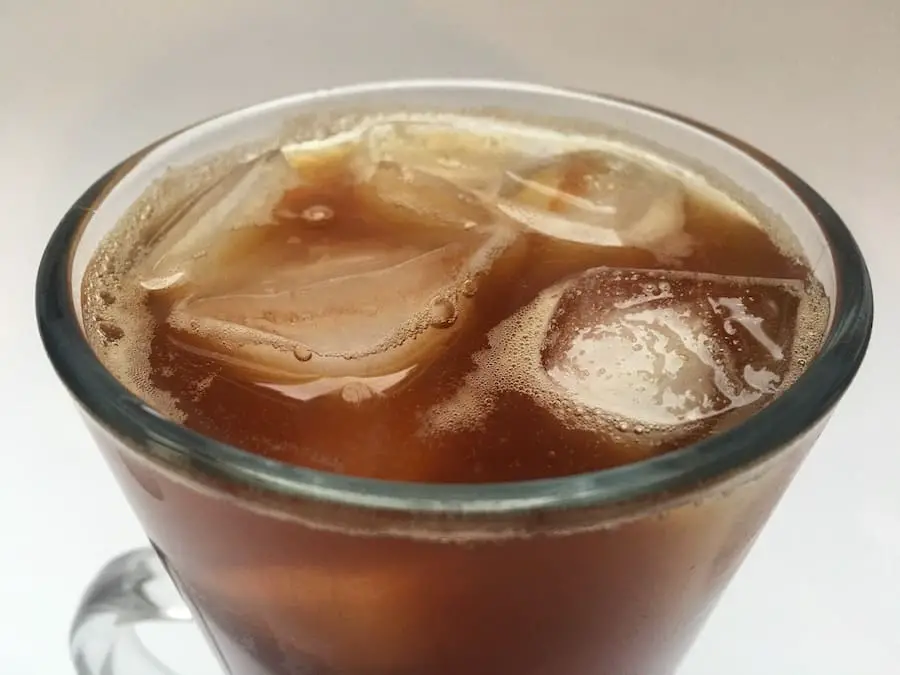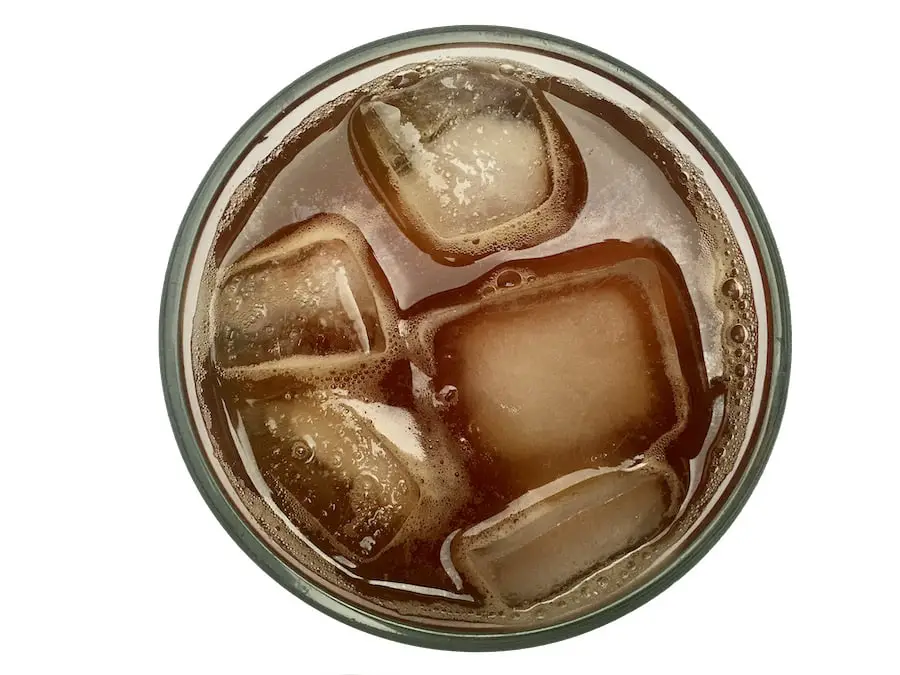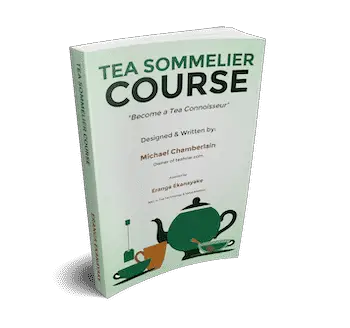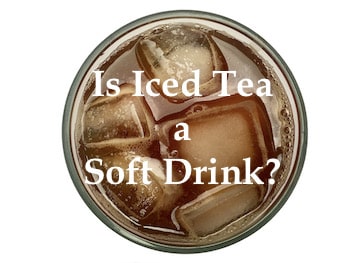There’s a fine subjective line between tea and soft drinks. While all tea is classed as a beverage, is it also classed as a soft drink? And more to the point, is iced tea a soft drink? And while we’re on the subject, what about Sweet tea? Let’s start with a quick summary.
Iced tea is considered a soft drink in the same way that soda water is. The ingredients of water, sugar (or sweeteners), flavorings, and caffeine, classify Iced tea as a soft drink. It is also a beverage. Where alcohol is present or added in any quantity, then Iced tea becomes an alcoholic drink.
Ultimately, you probably want to understand two things, if Iced tea is actually classed as a soft drink – in the same way, that soda is – plus the rules that apply around that. And what is it about Iced tea (or sweet tea for that matter) that makes it a soft drink?
First, let’s look at what components are present for any beverage to be considered a soft drink. We can dissect the definitive components of “soft drink” and then compare that with the components in iced tea.
Is Iced tea a soft drink? …what is a soft drink?
Most of us think of soda drinks when we think of soft drinks, and for the most part that is true,. And they make up the bulk of the category of soft drinks – or do they?.
Here’s the summary of what a soft drink is – according to Wikipedia:
“A soft drink is a drink that usually contains water (often carbonated), a sweetener, and a natural and/or artificial flavoring. The sweetener may be a sugar, high-fructose corn syrup, fruit juice, a sugar substitute (in the case of diet drinks), or some combination of these. Soft drinks may also contain caffeine, colorings, preservatives, and/or other ingredients.”
For more information on iced tea, here’s everything you need to know about iced tea. Ok, let’s get into the details…

How does Iced tea relate to this definition…
Well, for this we need to compare the definition of soft drink to Iced tea. That definitively comes down to the components of Iced tea
So when we think about tea, in general – which includes Iced tea, there are a few components we should analyze from the definition of soft drink. I’ve highlighted these factors in the above quote and will go further into it now.
Water
In any tea, water makes up the largest component. The definition of soft drink doesn’t state whether water must be hot or cold. So we can only presume it could be either. This means hot water must also be permissible in the component of water.
Sweetener
Although some teas are naturally sweeter in taste than others, most do not contain natural sugar, and almost certainly no artificial sweetener. These can, however, be added by the user, just as easily as a soda manufacturer can add sweetener to canned soda.
For home use, this would be down to the user. But In the case of canned store-bought Iced tea, this is different. In the vast majority of cases, there is undoubtedly going to be some form of sweeteners involved.
The same principles apply to manufactured sweet tea, there will likely be sweetening agents within the ingredients of the sweet tea.
Artificial flavoring
I’ve added this to the list because it is possible to add artificial flavoring to tea, for example; you can get white tea with vanilla added to it. So while this is not normally the case, it is possible for the manufacturer to add artificial sweetener, or the end user.
Sugar
This is along the same lines as sweeteners, so in essence, most of the time sugar would be added by the manufacturer. In the case of canned Iced tea this would be the manufacturer, but equally sweeteners can be added if making Iced tea at home.
In the variation of this – sweet tea, clearly, historically, sugar forms an integral part of the beverage, and the average sweet tea contains 22 to 25 grams per 8 fl oz cup of tea.
You can find out more about the difference between Sweet tea and Iced tea here.
Caffeine
This is the factor that I really want to ascertain. Caffeine in true types of tea vary, but when tea is derived from the tea plant Camellia Sinensis then there will always be an element of caffeine involved.
I’ve written extensively on the caffeine content in various types of tea – which I’ve added a list of further down.
Most soda cans that you purchase will likely have an element of caffeine. And in the case of high energy drinks, there usually is a lot of caffeine included – much higher than in any tea. And yet high energy drinks are still classed as soft drinks.
In fact, neither tea or coffee are considered high-energy drinks. Actually, neither is a can of coke.
The presence of caffeine in tea, among the other components of water, sugar, and flavoring, does not put tea into the energy drink category. But it does include it in the category of soft drink.
Note also that herbal teas do not contain caffeine unless the user adds some element of true tea into the ingredients.

Zero alcohol in tea
Of course, there are the odd occasion when you might add some whisky to your tea. And iced tea is no exception to this. But on the whole, 99% of tea that is drank either in the USA, or in the Britain, contains no alcoholic content.
We can say with certainty then that tea is not an alcoholic drink – but then you probably knew that already.
Sweet tea
I’ve mentioned and included sweet tea throughout the above points, as it’s a close relation to iced tea. And I just wanted to confirm this point…
The presence of water, sugar (or sweeteners), flavorings, and caffeine classifies sweet tea as a soft drink. So sweet tea is considered a soft drink in the same way that soda is a soft drink. Where alcohol is present or added in any quantity, this then becomes an alcoholic drink.
Here’s how to make sweet tea.
Who is allowed to drink Iced tea
Because Iced tea is a soft drink, it follows all the same rules that apply to your average can of soda. People of all ages are legally allowed to drink iced tea. When it comes to children and teenagers, adults are advised to apply parental guidance on the quantities.
For more information, I’d recommend reading the following parental guidance on children drinking soda and I’d probably recommend you apply this to them drinking Iced tea, or any kind of tea too.
If you’re an adult that is “allowed” to drink tea, then you might be allowed to purchase my easy fast track Tea Sommelier Course to becoming a tea connoisseur. Here are some more details…

Take the fast track and become a tea connoisseur
Whether for enjoyment or considering a career as a tea sommelier. This course has everything you need to enhance your tea knowledge and tea-tasting skills.
This course keeps it simple with step-by-step tea tasting and easy reference guides
For pleasure, or as a precursor to a career in the tea industry. Find out what tea sommelier actually does, their career paths, and what they earn.

Find out more about the Teahow Tea Sommelier Course!
Find out more about the Teahow Tea Sommelier Course!
More tea help
Strange to think of tea as being a soft drink. It almost implies that it’s something your kids might ask for (maybe because I have kids – and they do occasionally ask for it). But tea is more often just considered a beverage, which to me sounds far more adult. Especially given the complexities and scope of tea in general.
So feel free to drink tea, and for your children to drink tea too (with parental guidance). Just be aware of how many cups of tea a day you should be considering.
Here’s a list of my other articles that explore and explain the caffeine content in various types of tea.
Does Earl Grey contain caffeine
